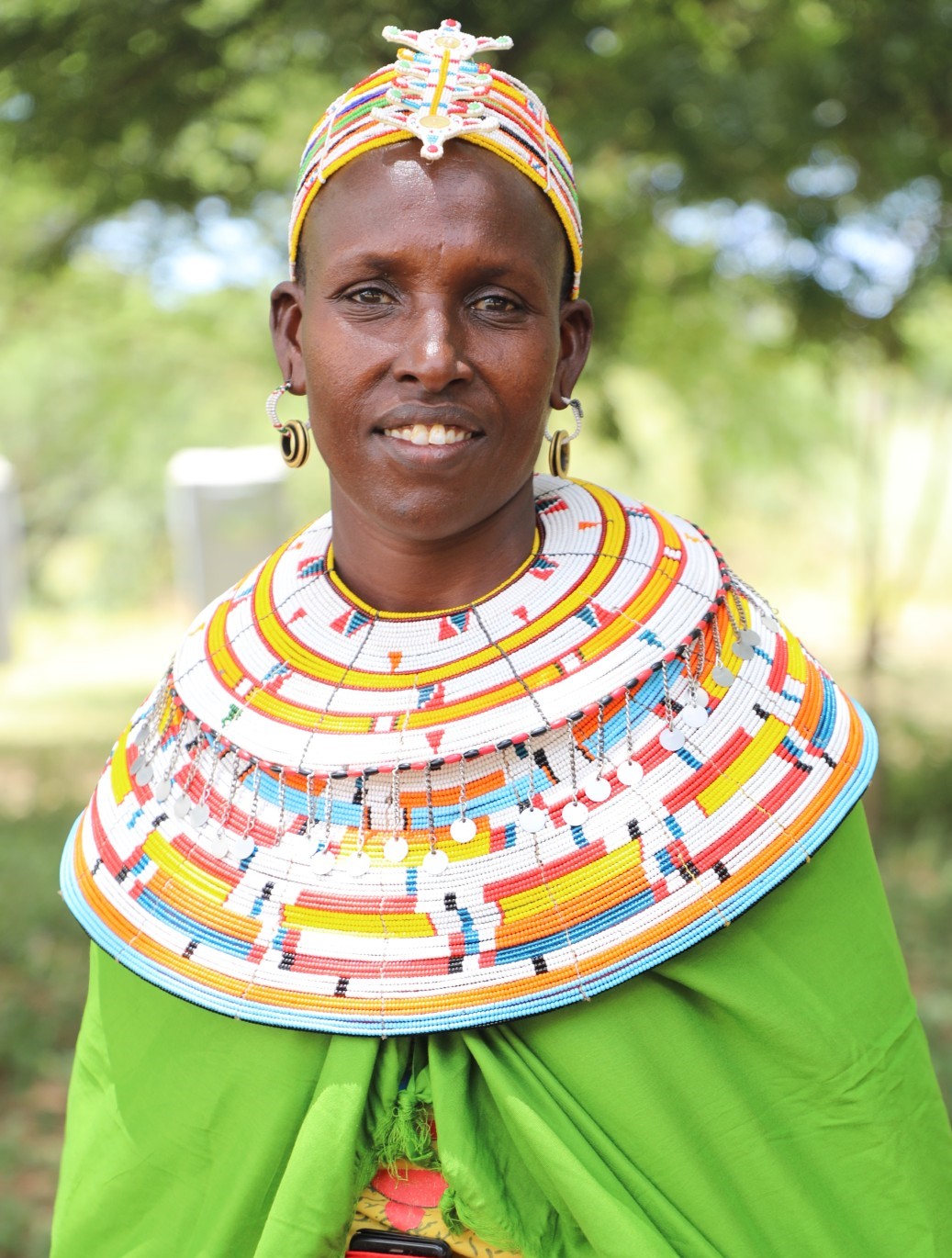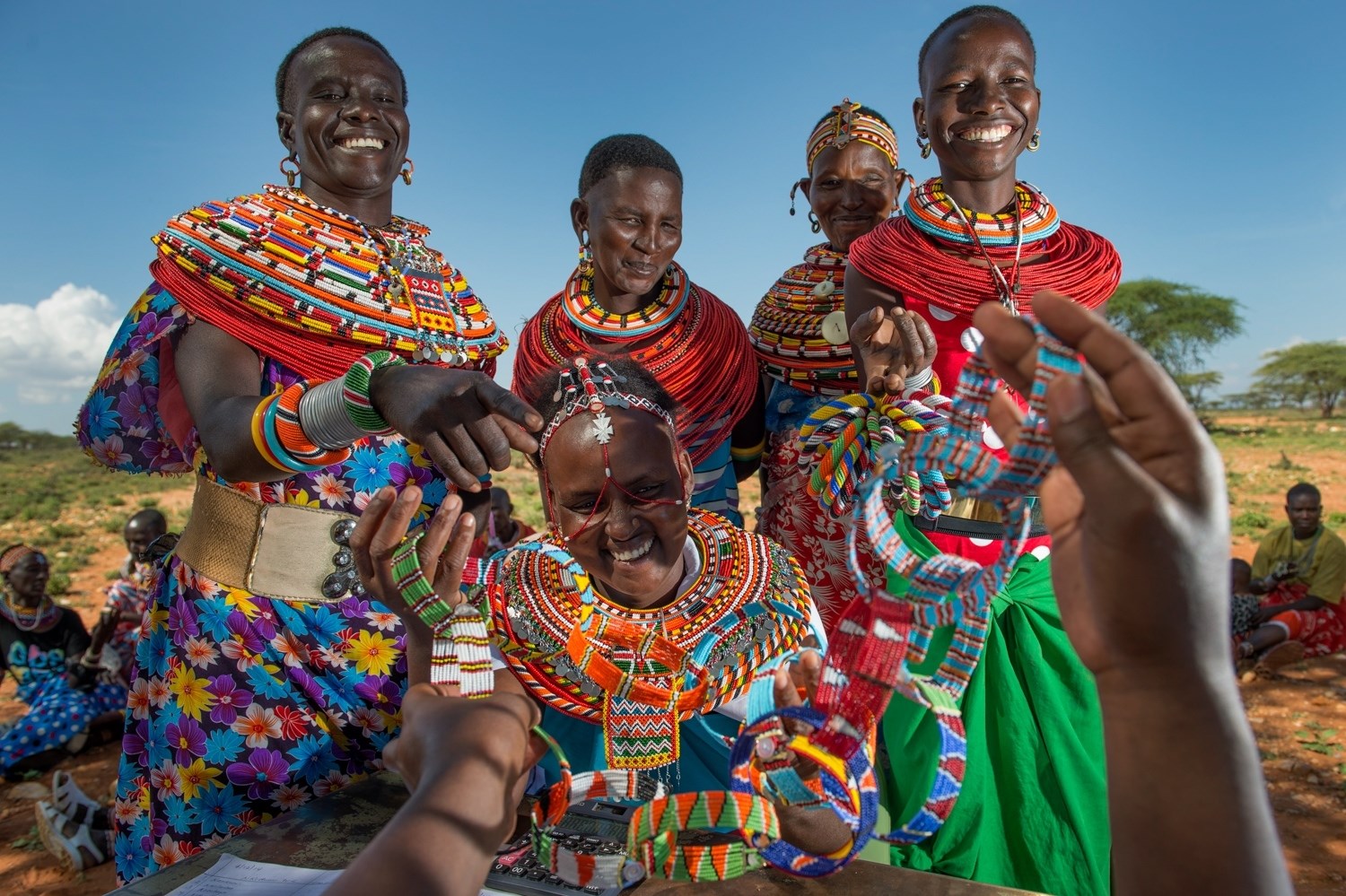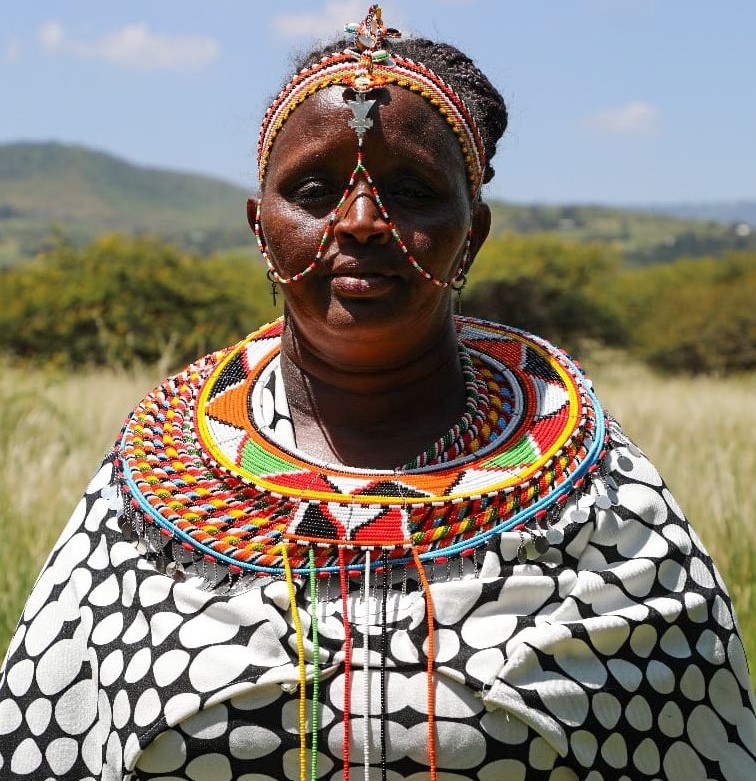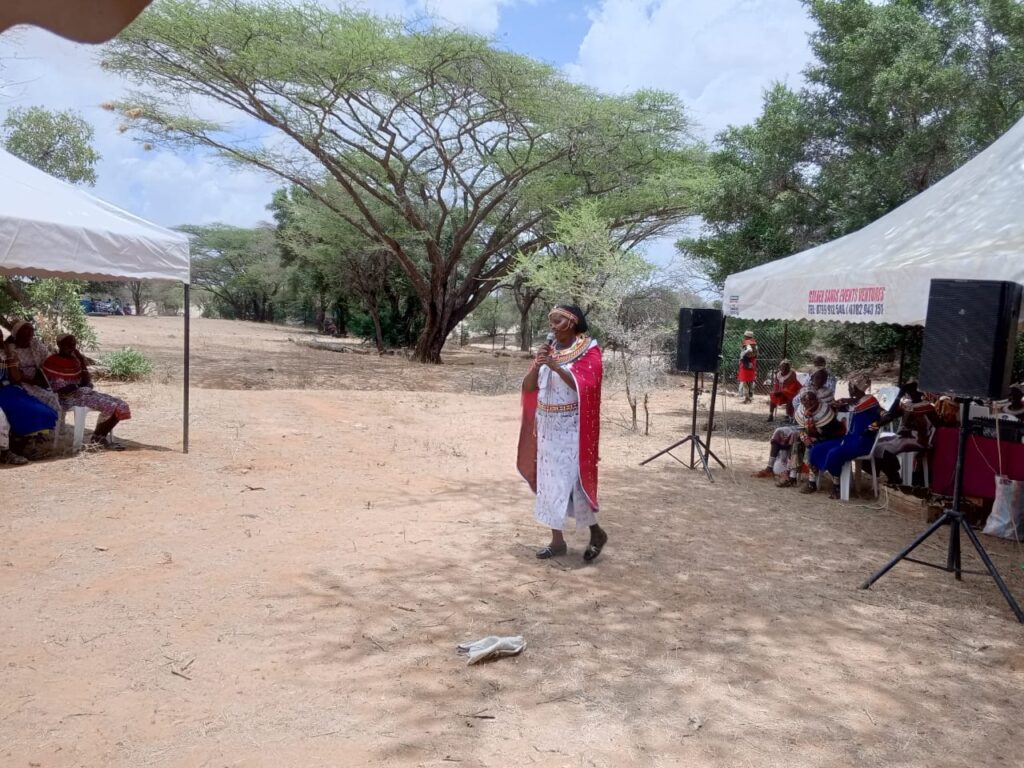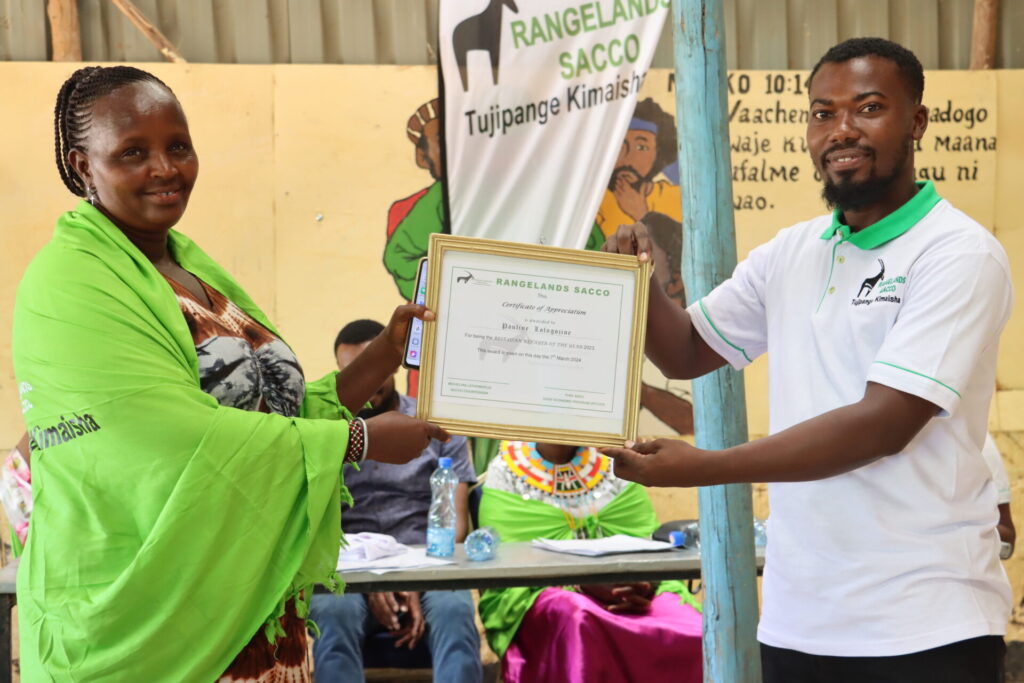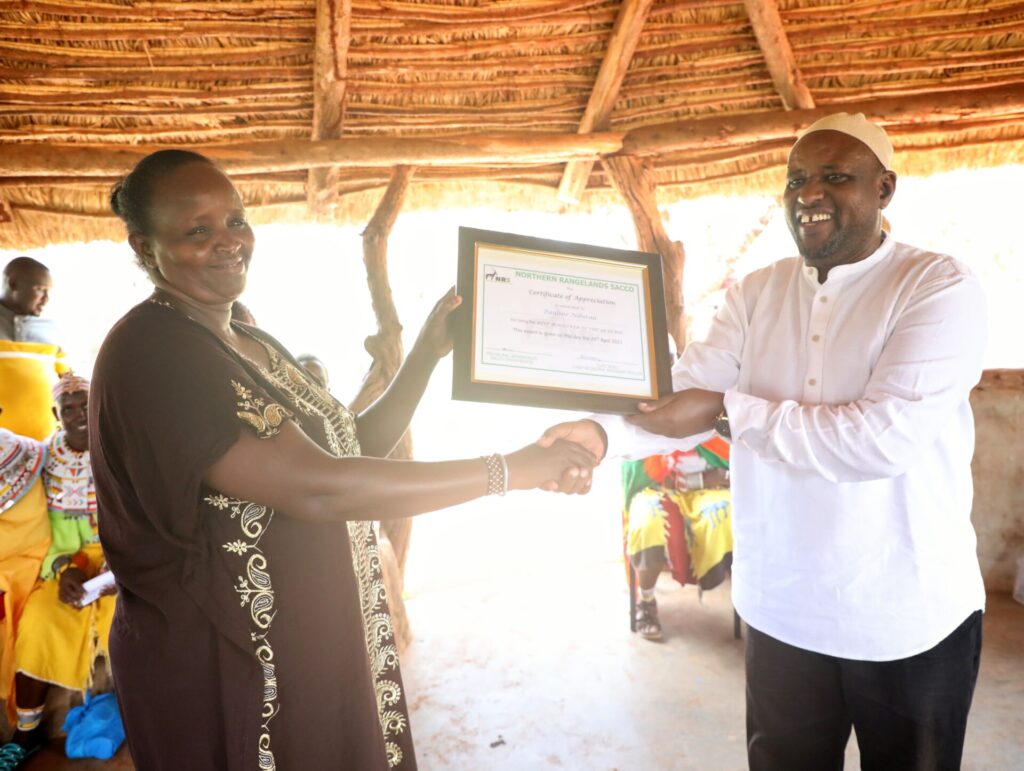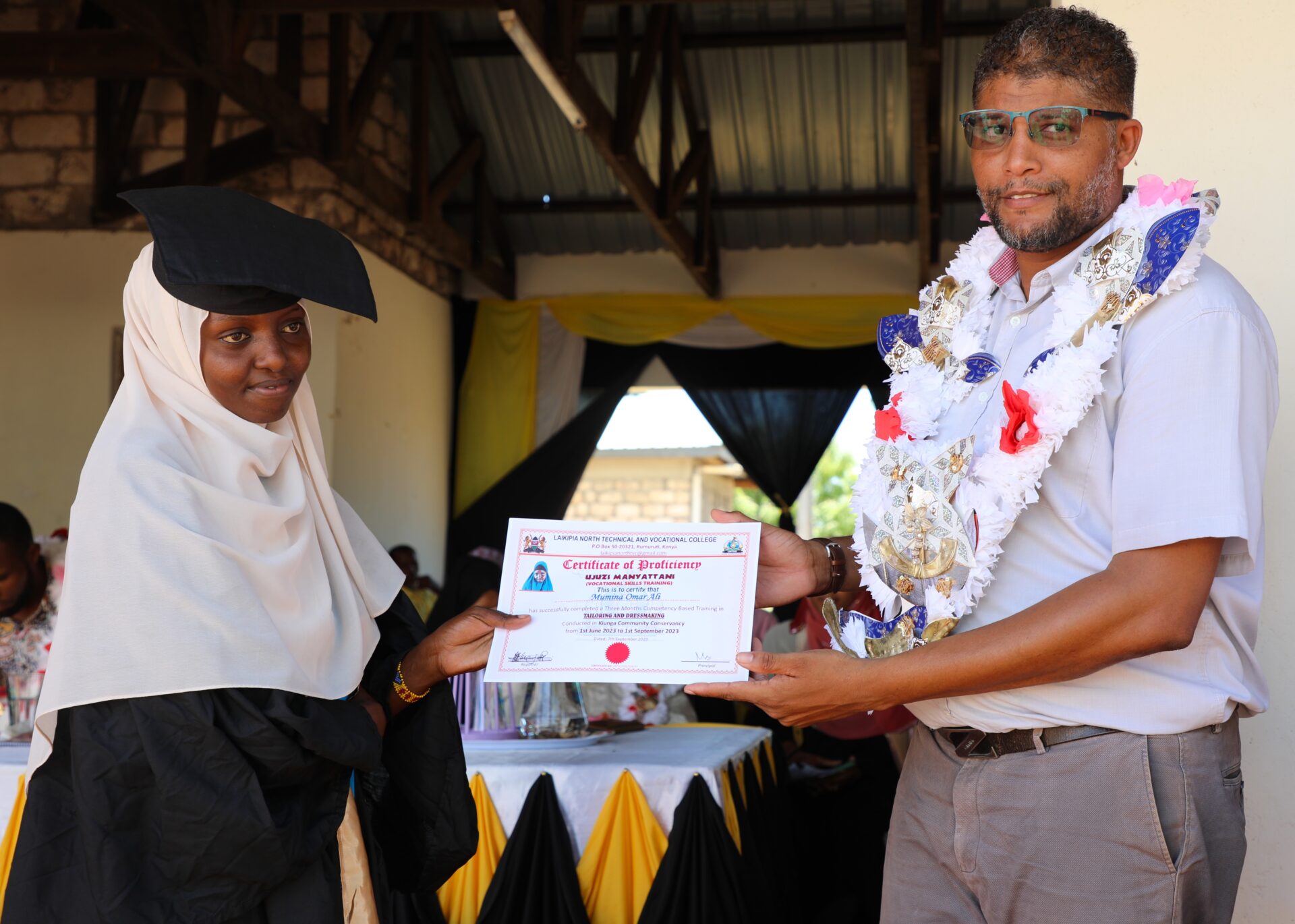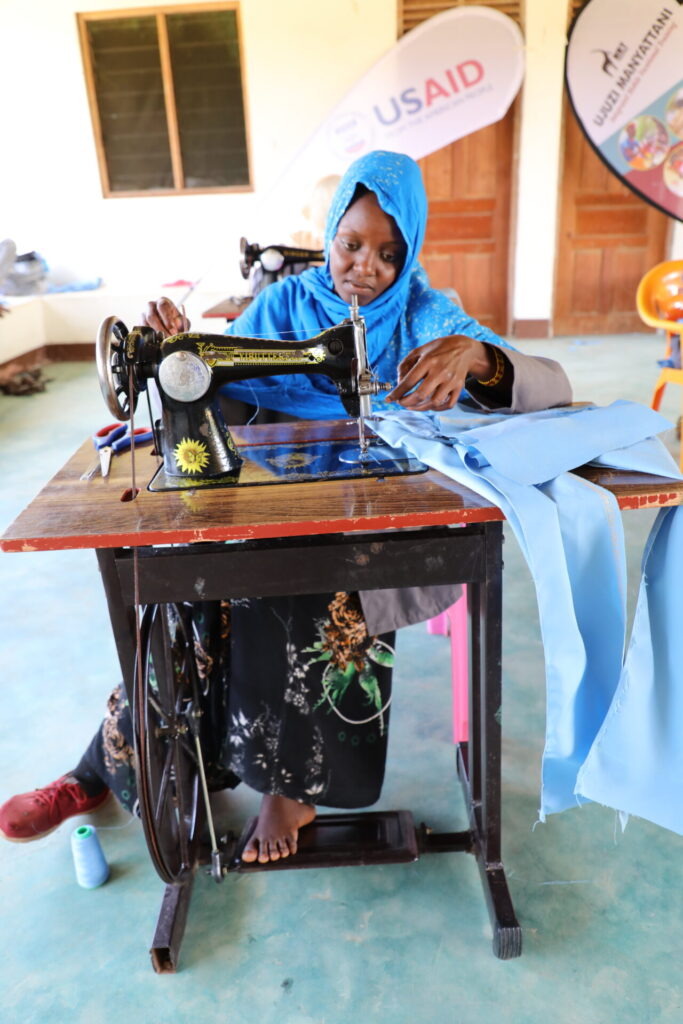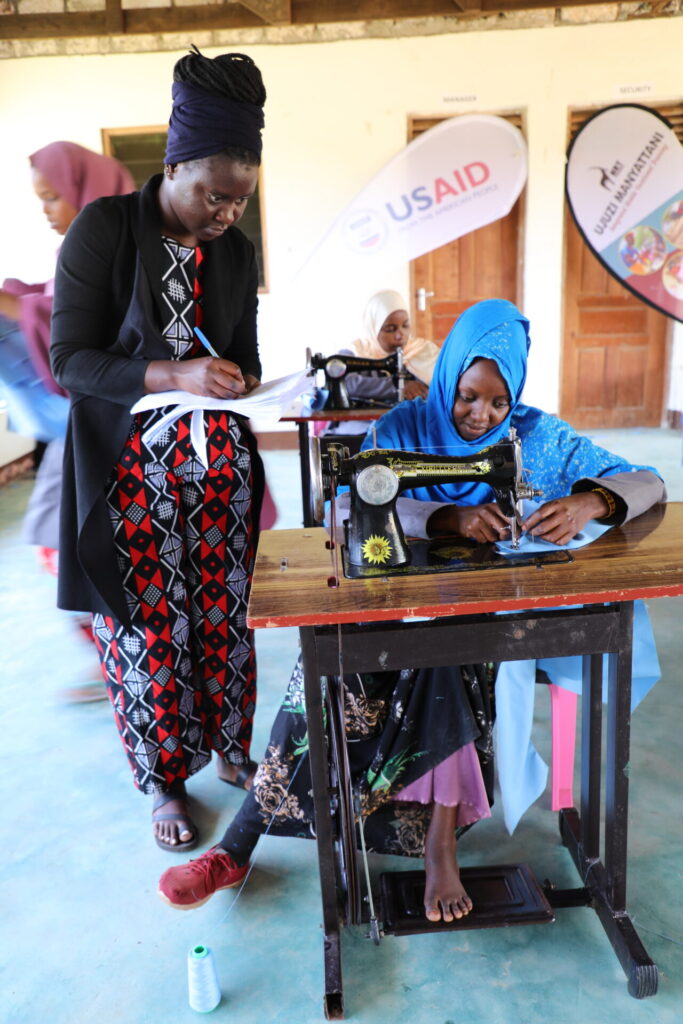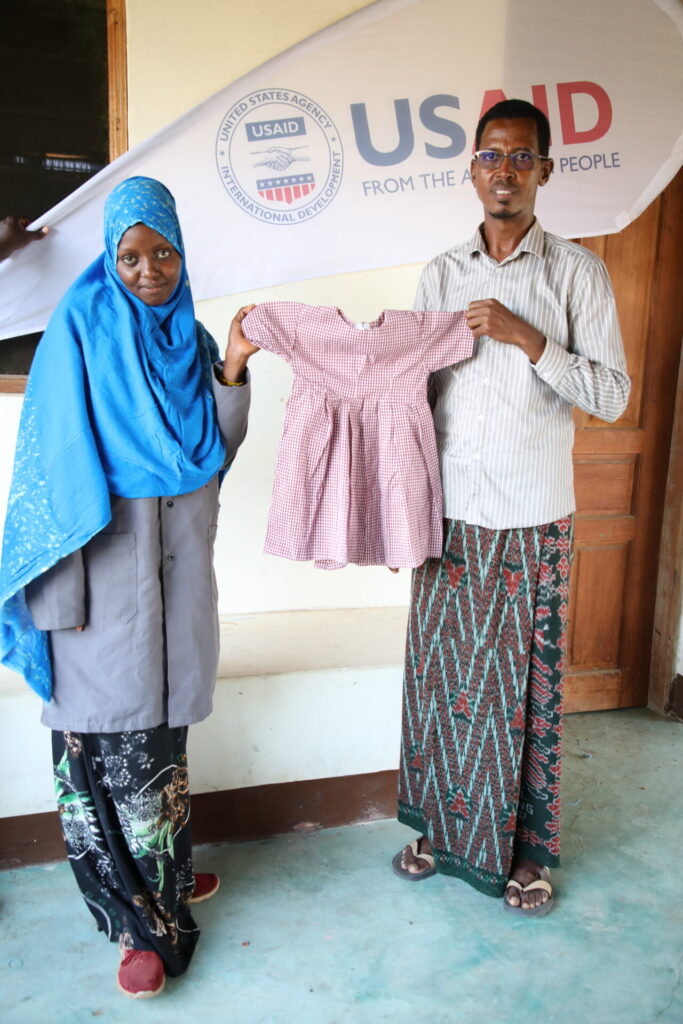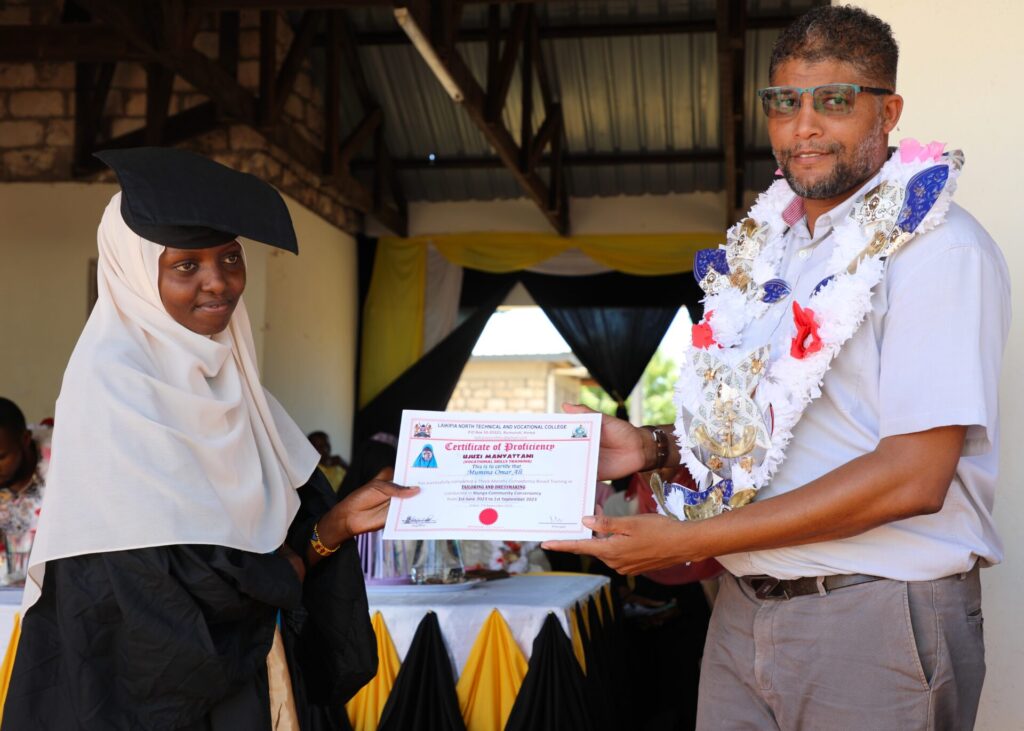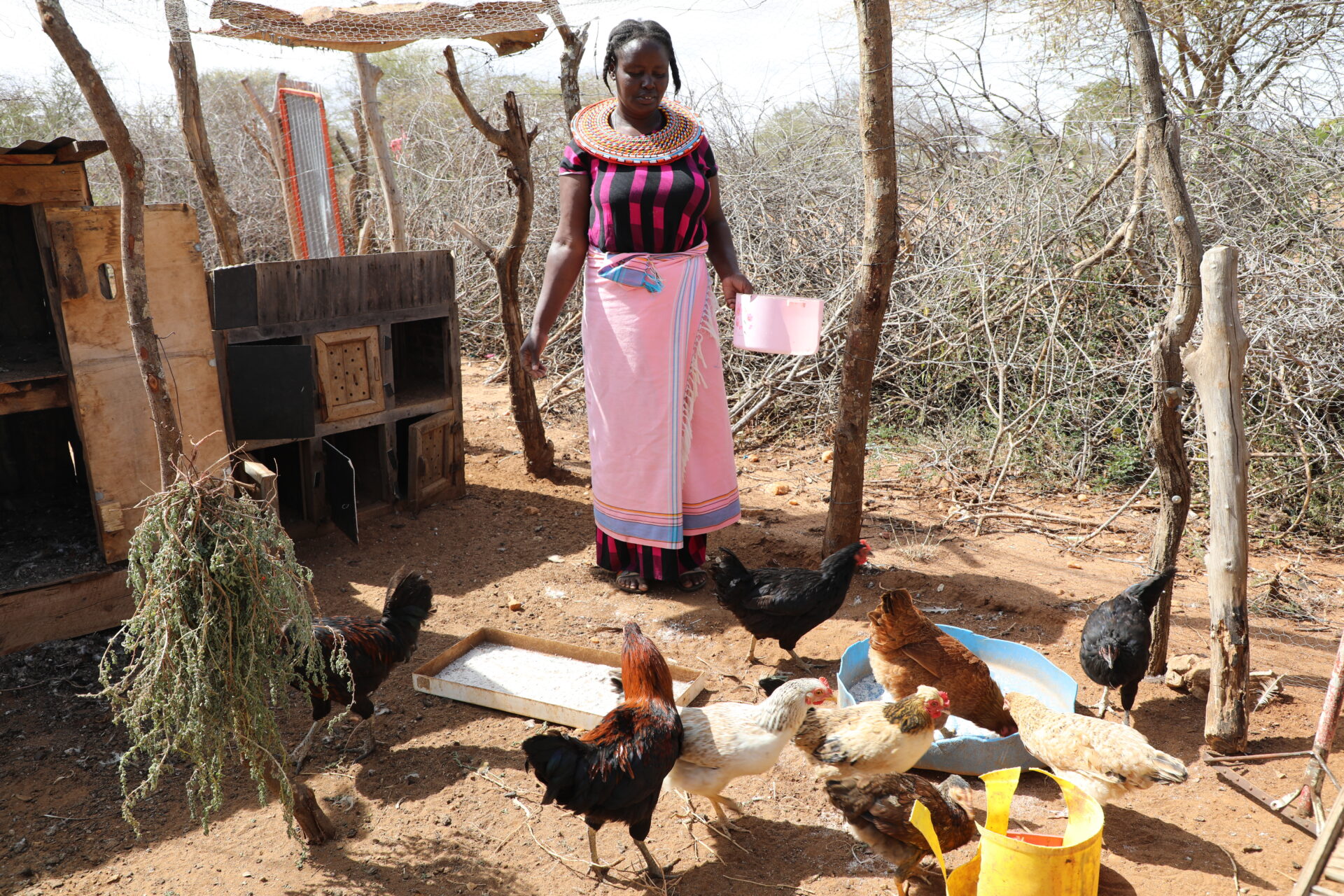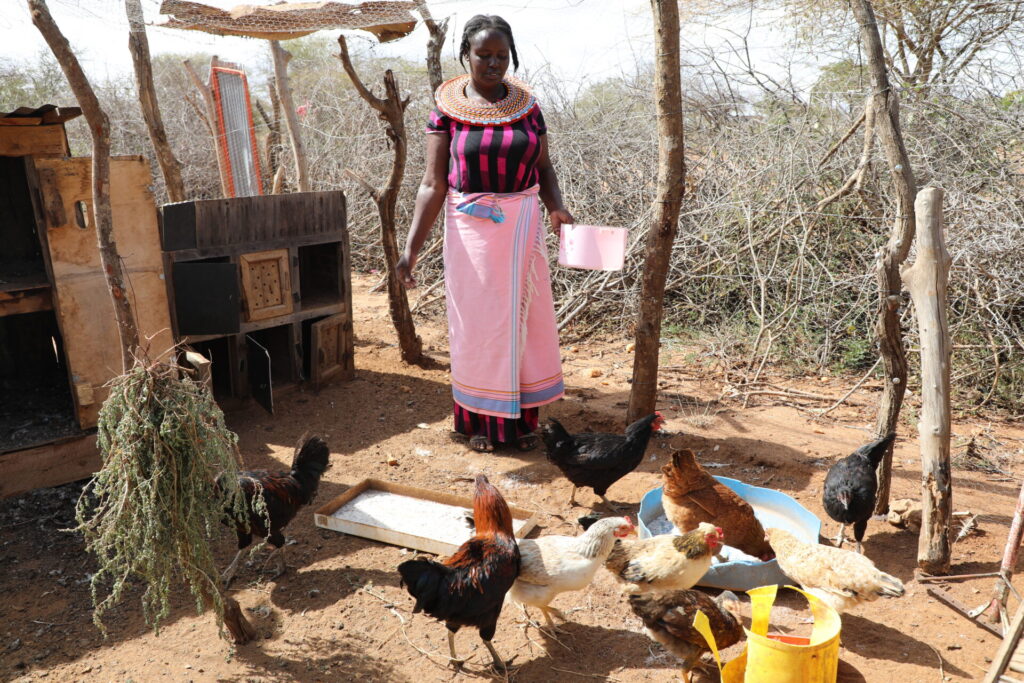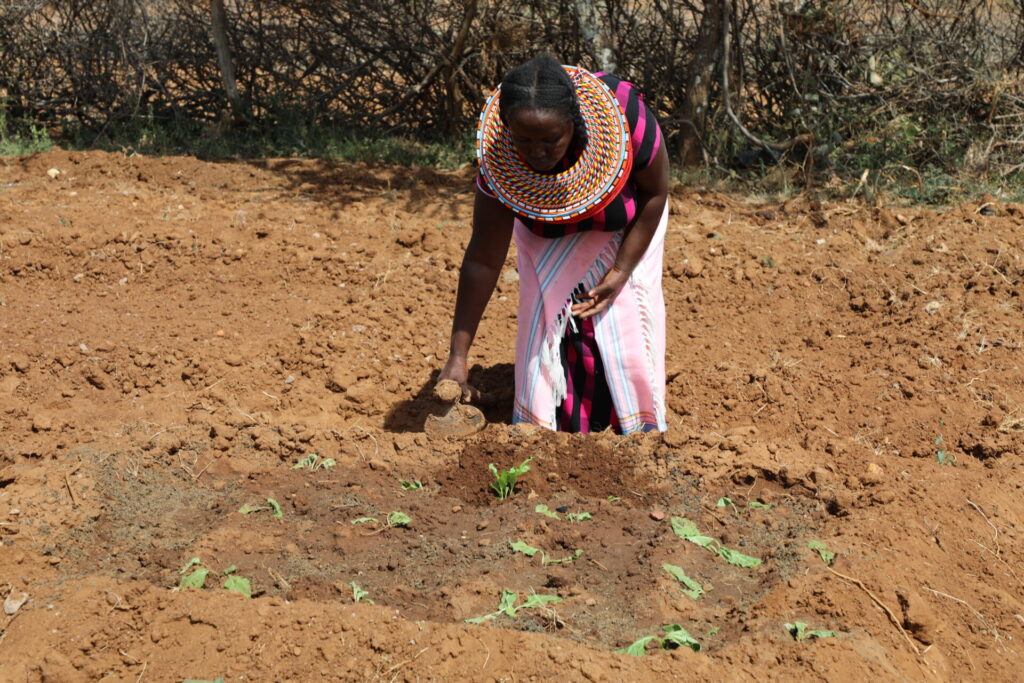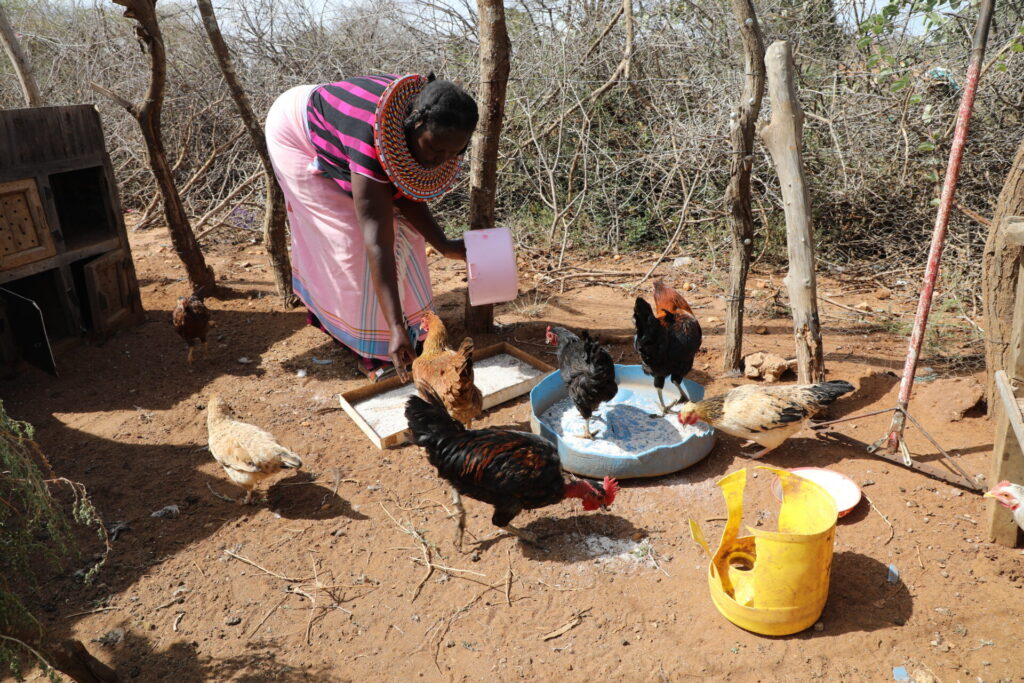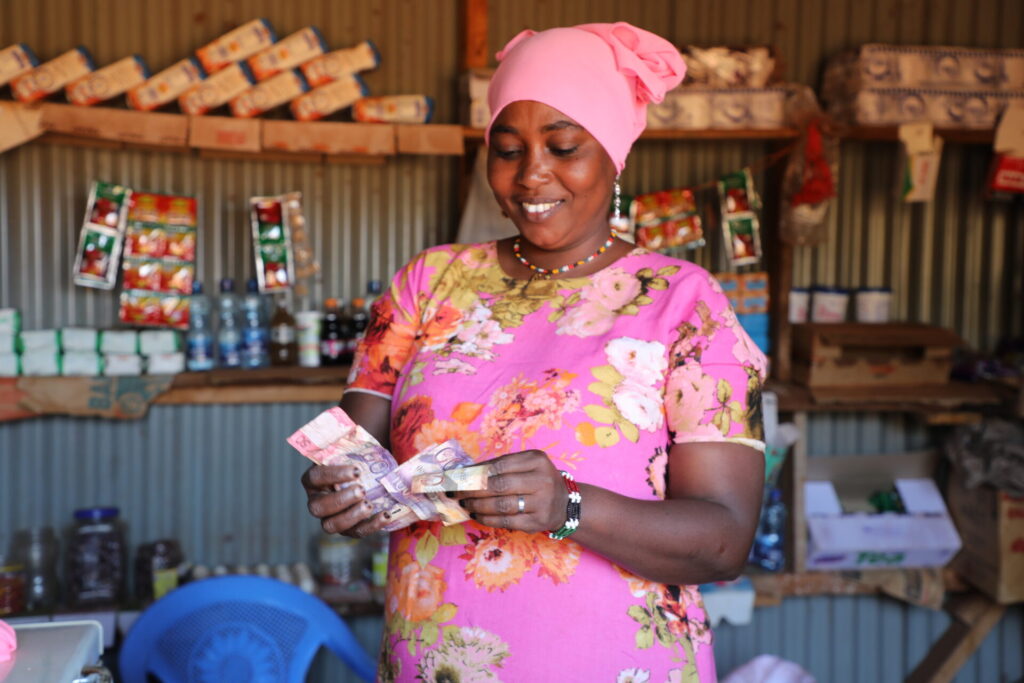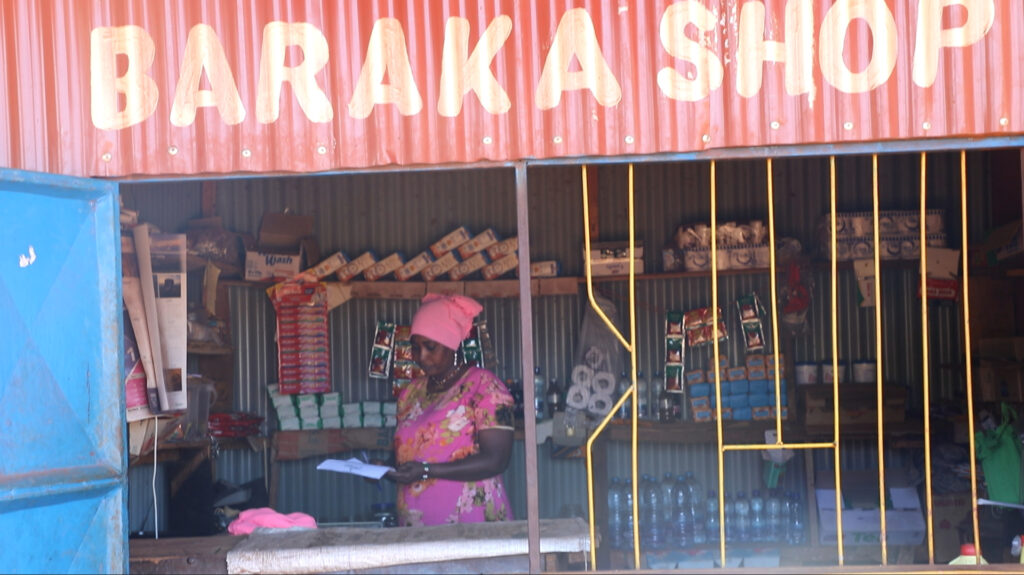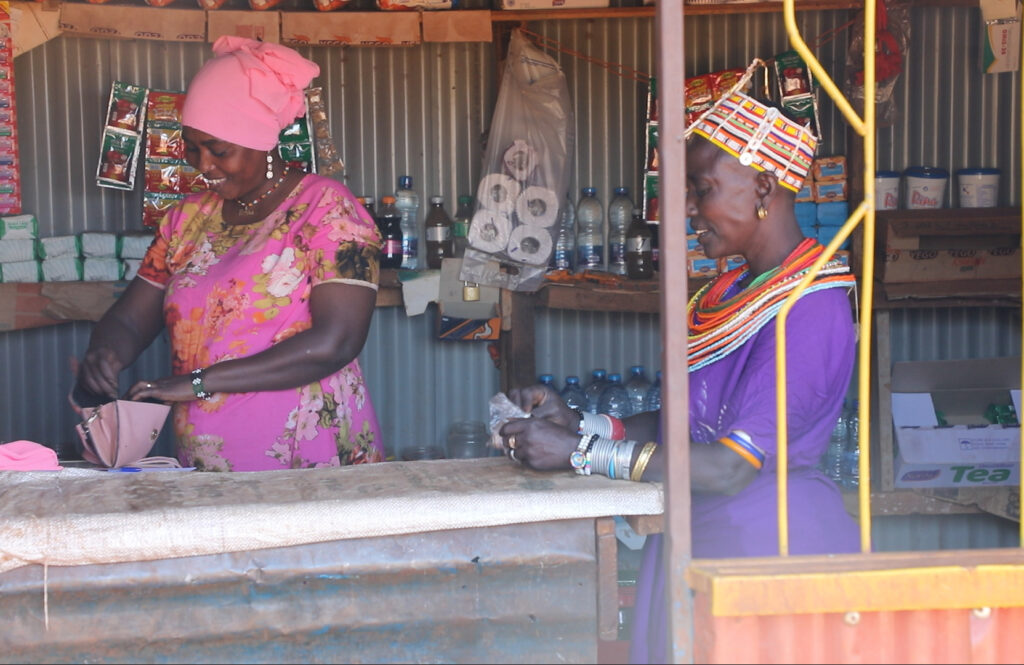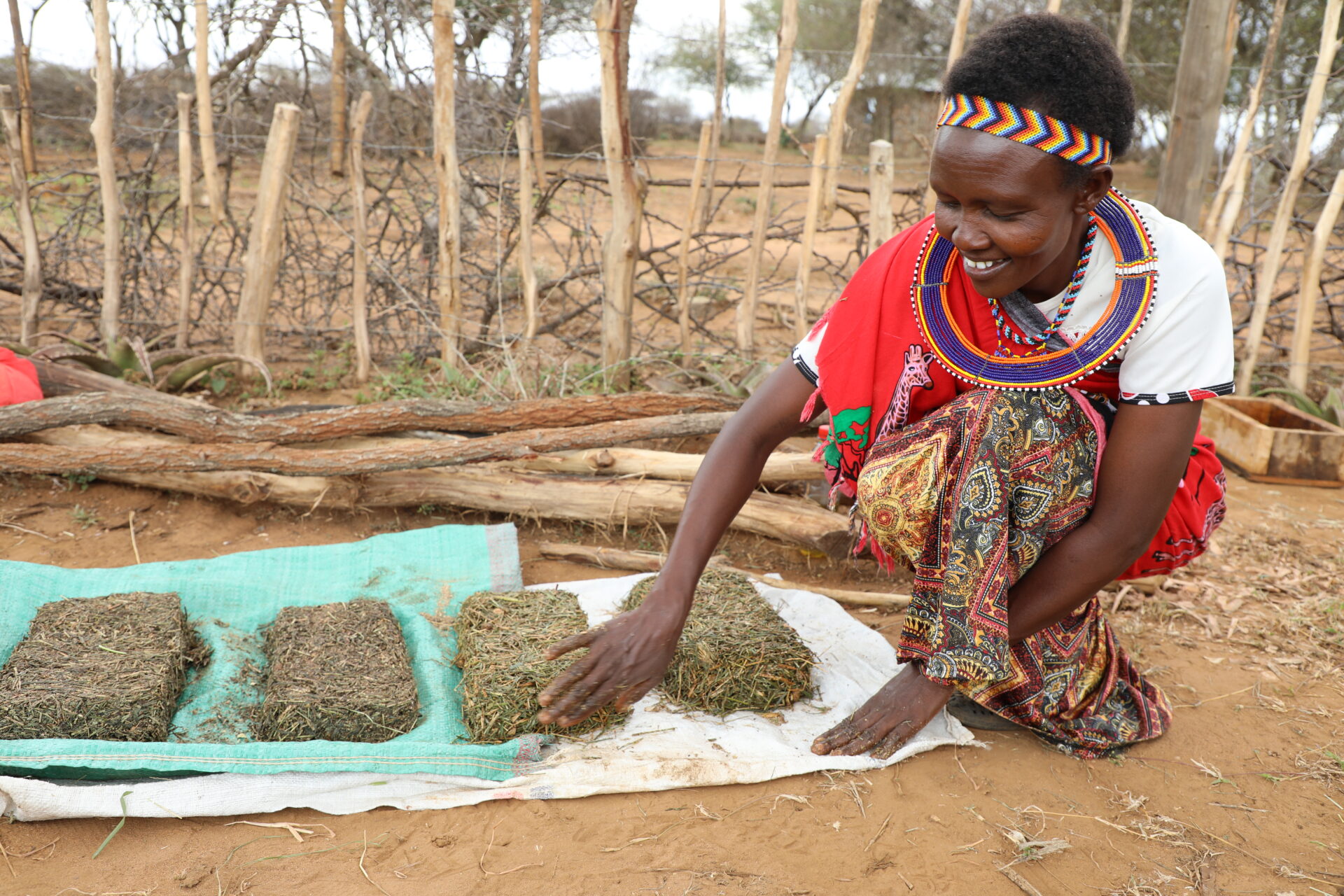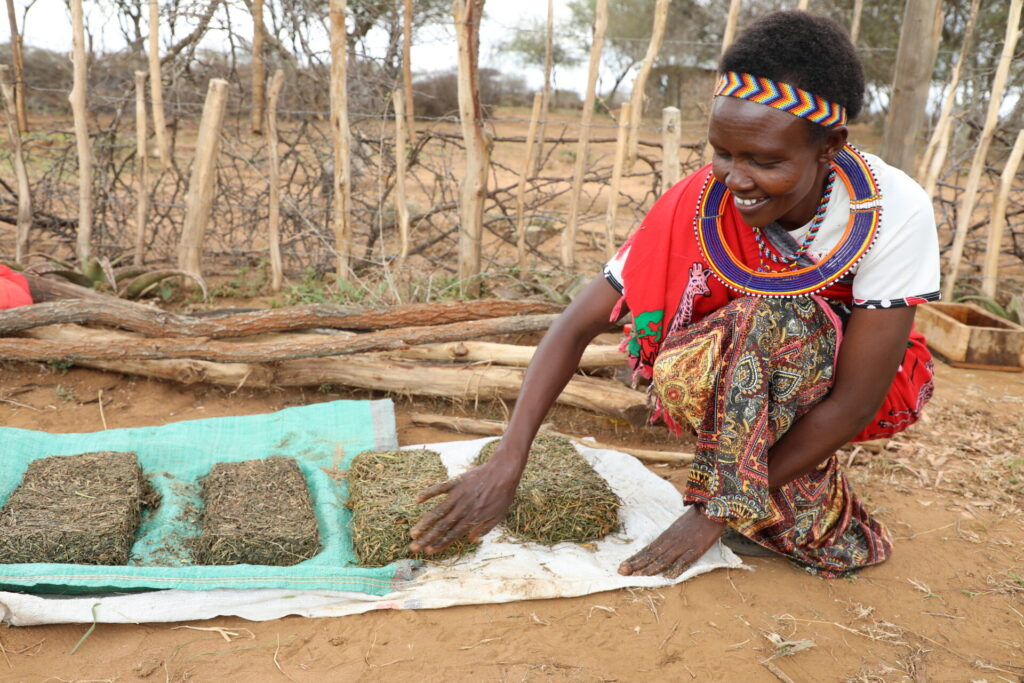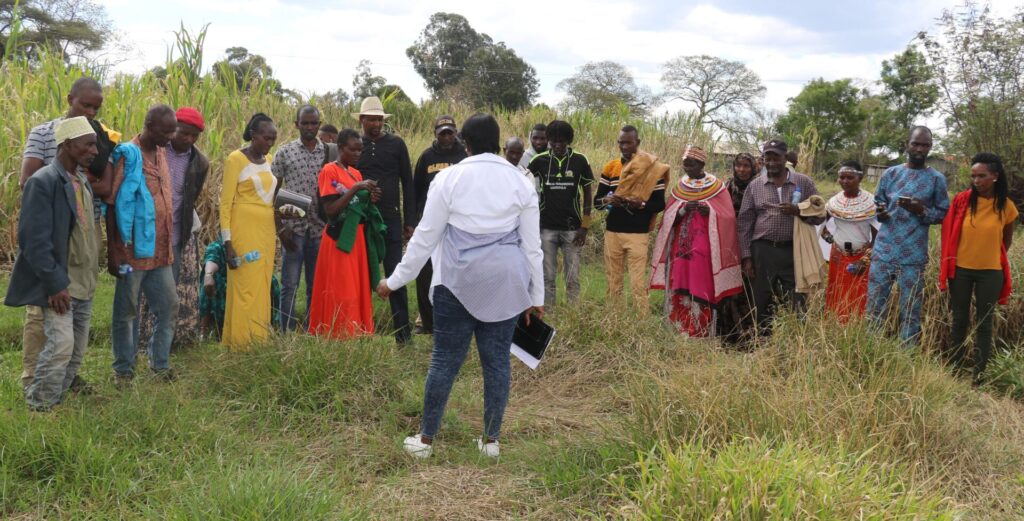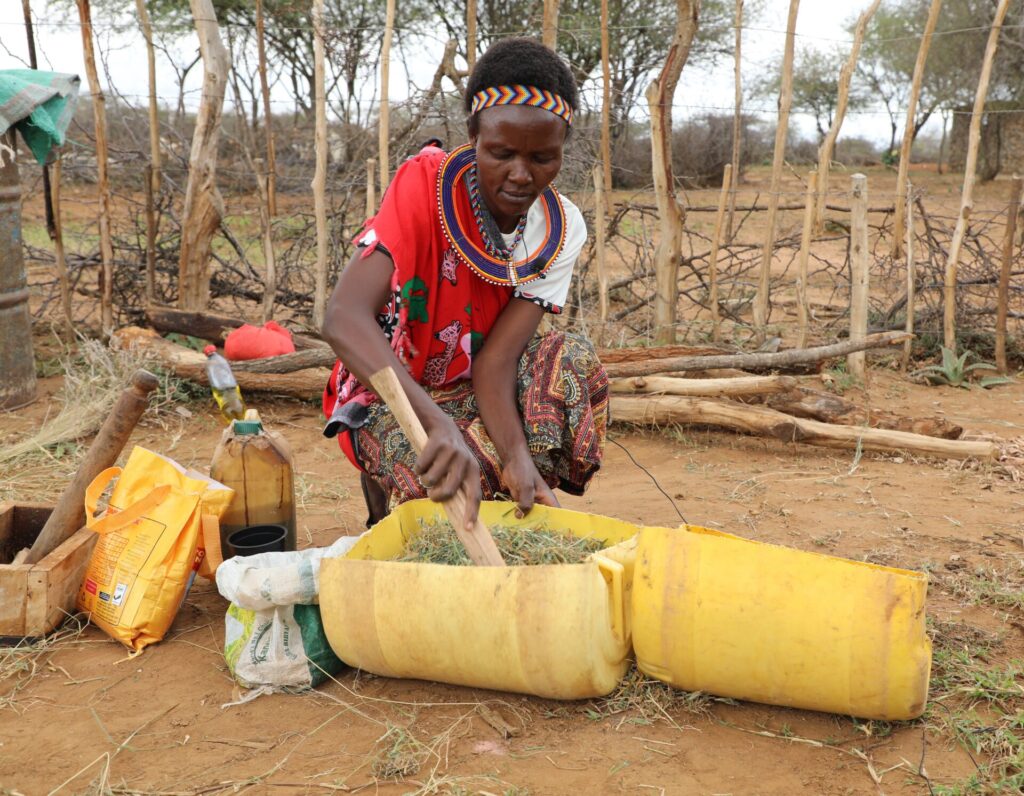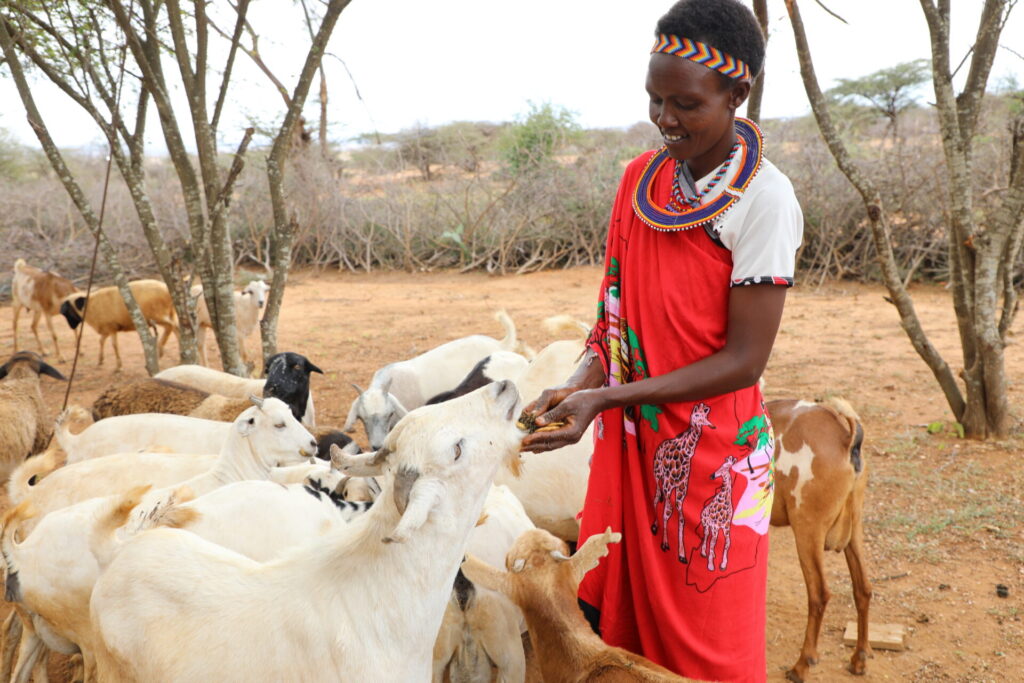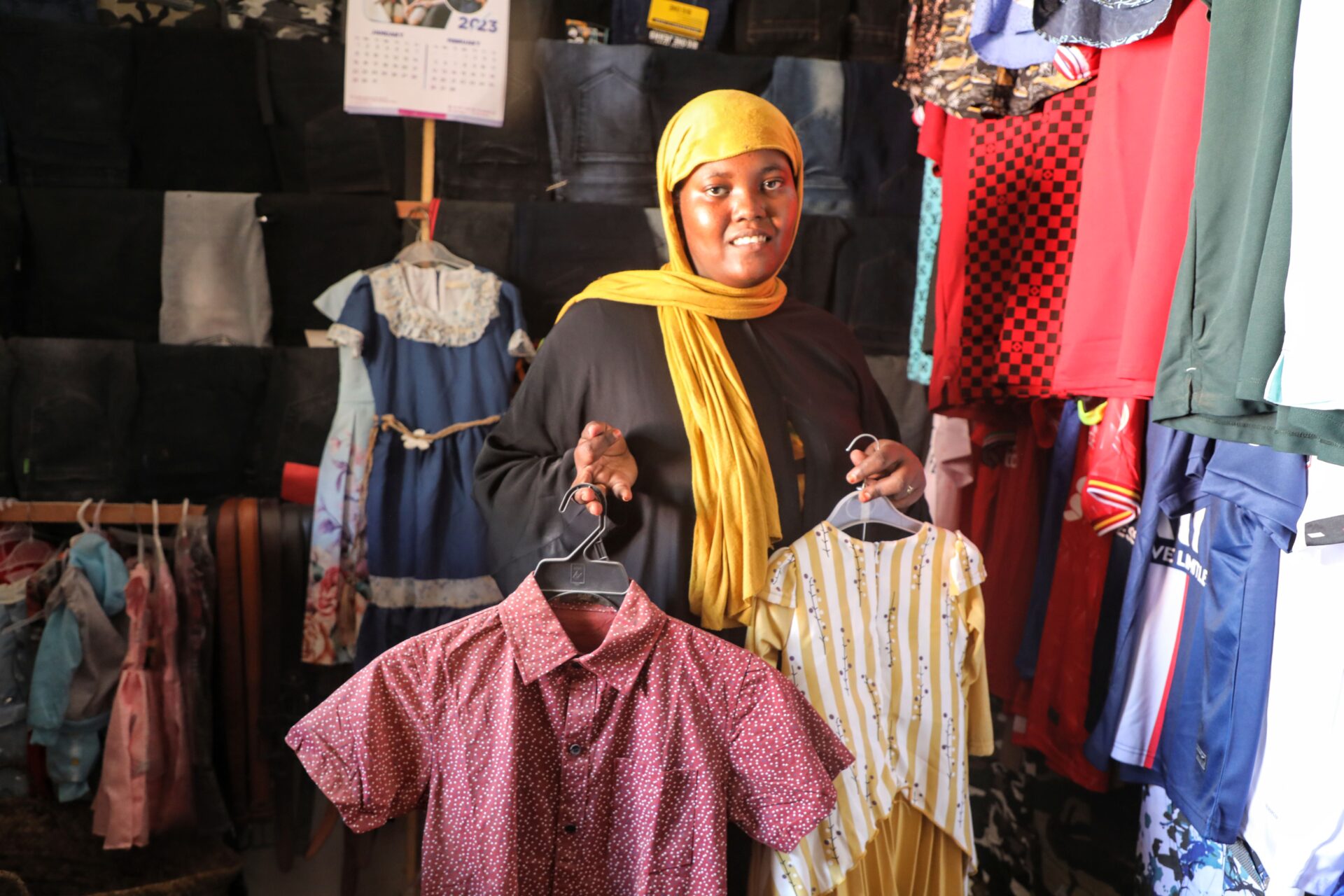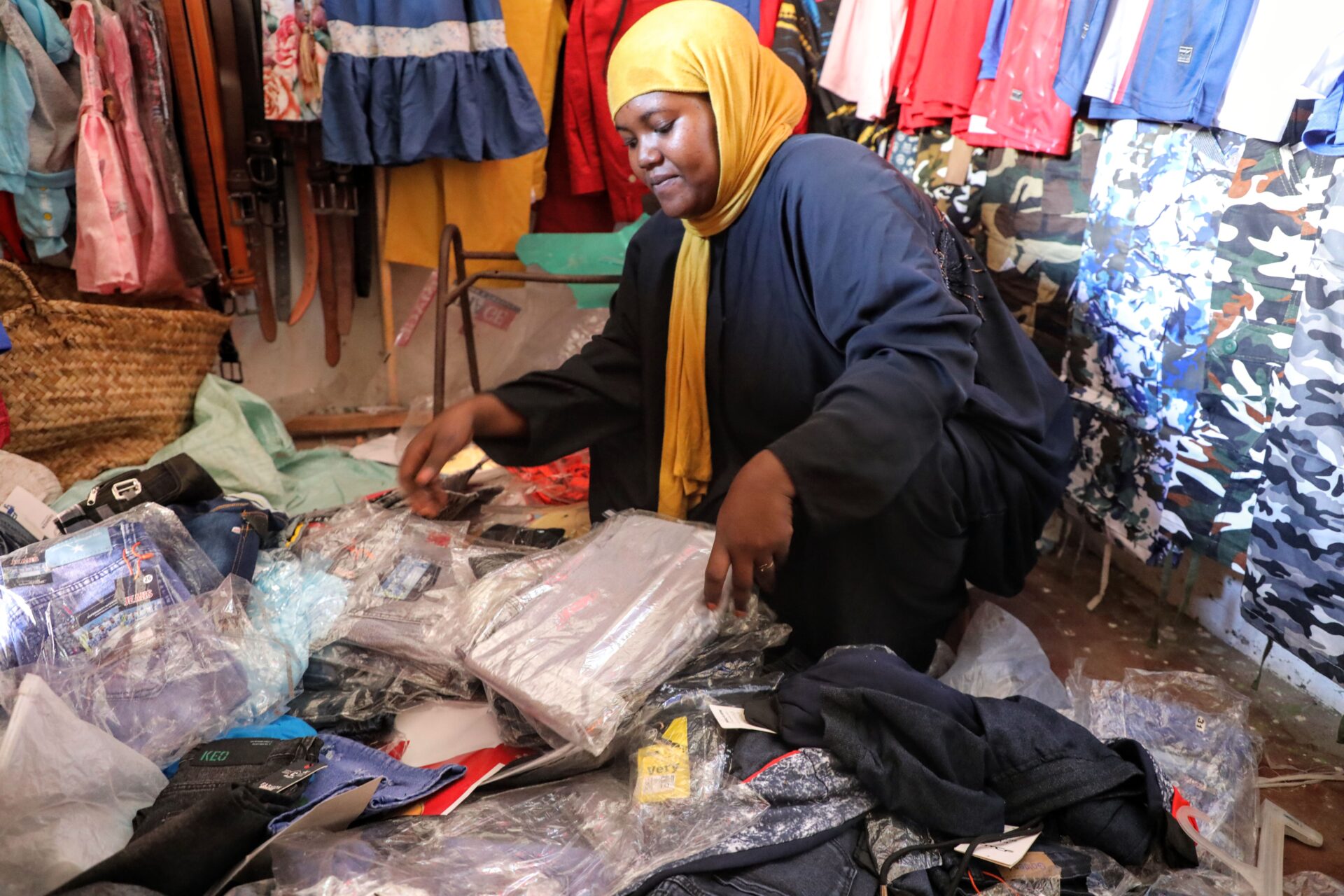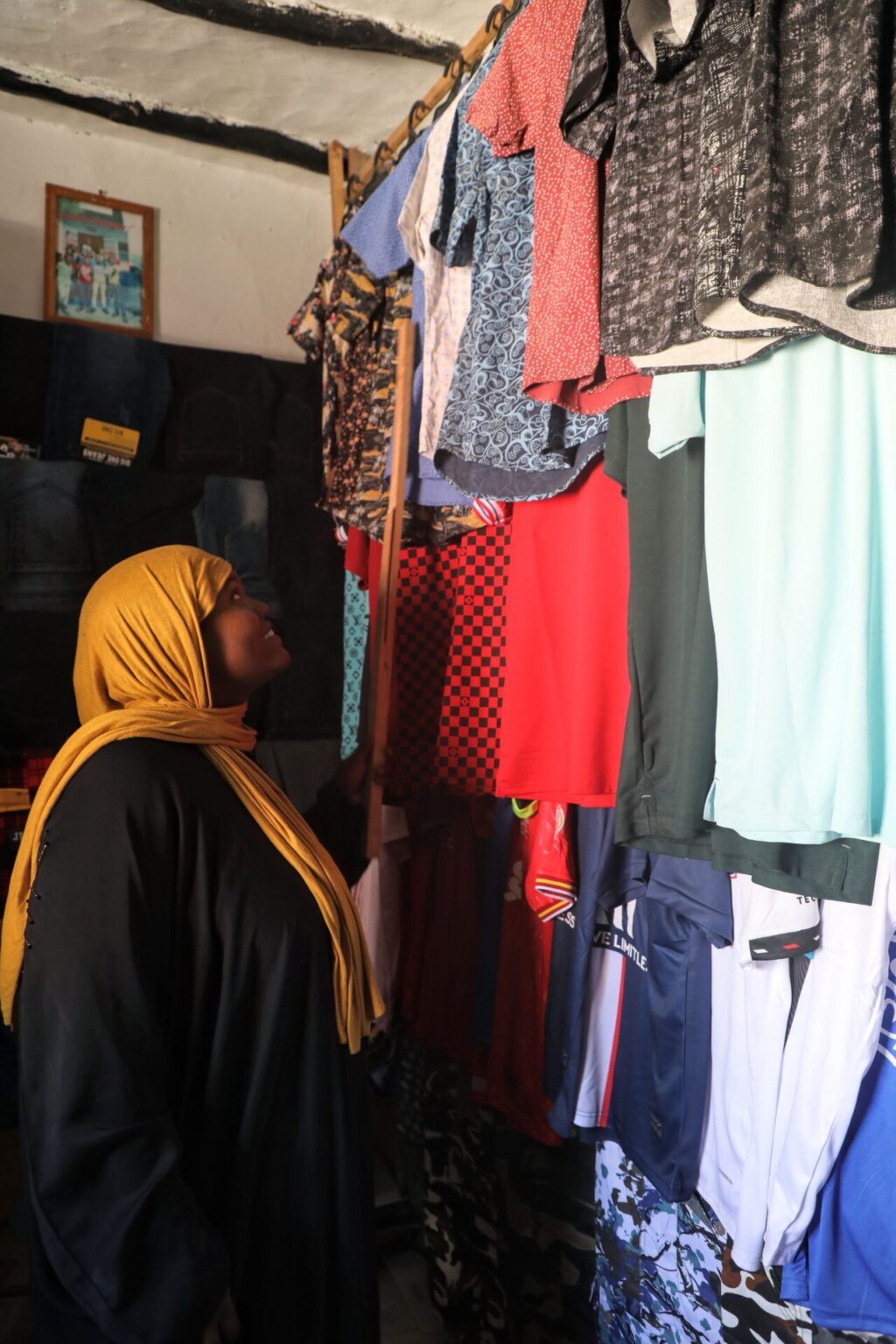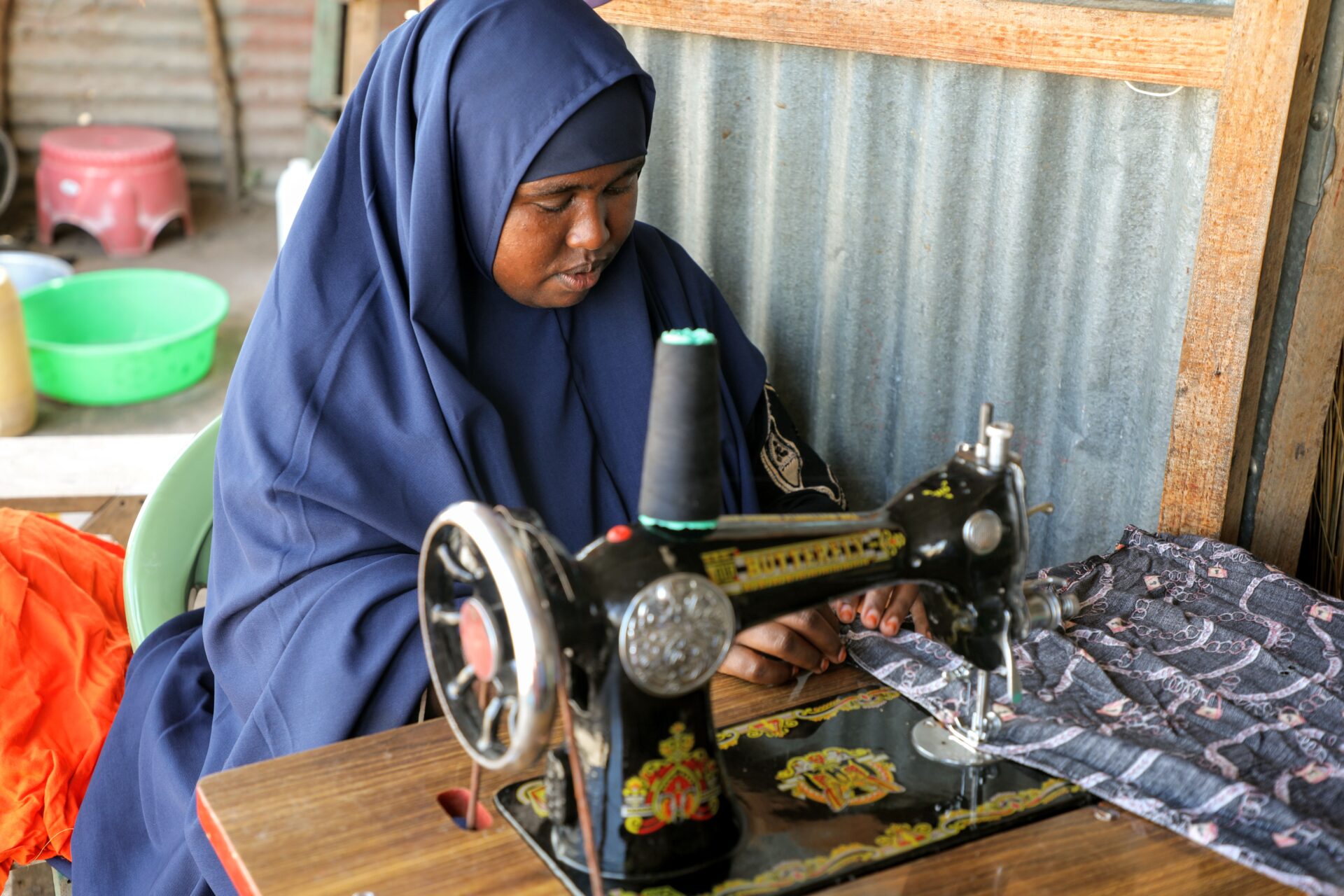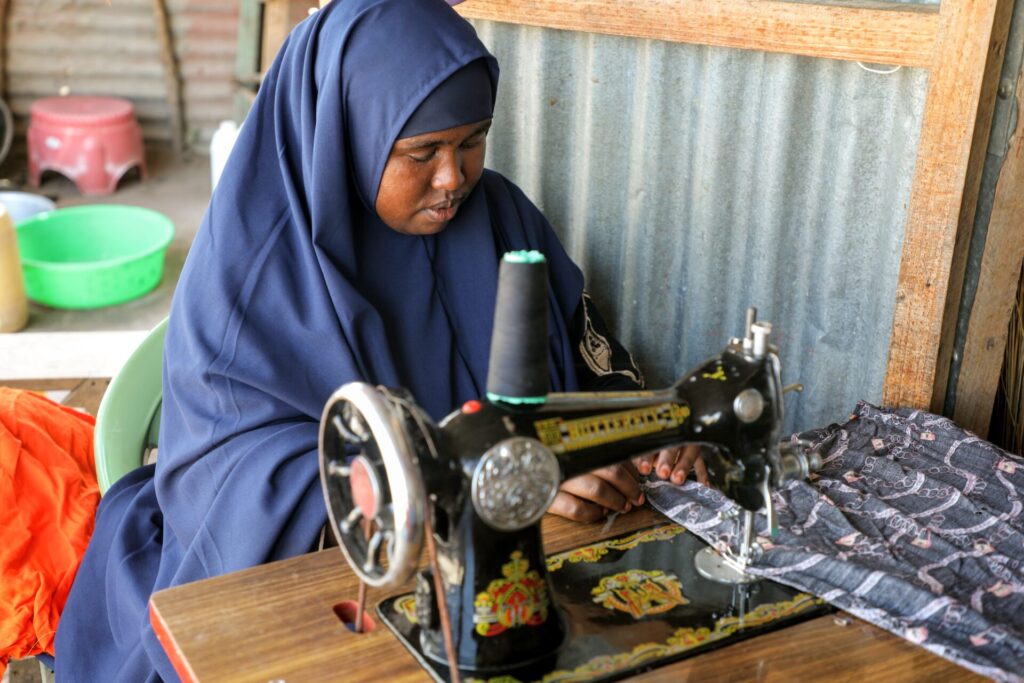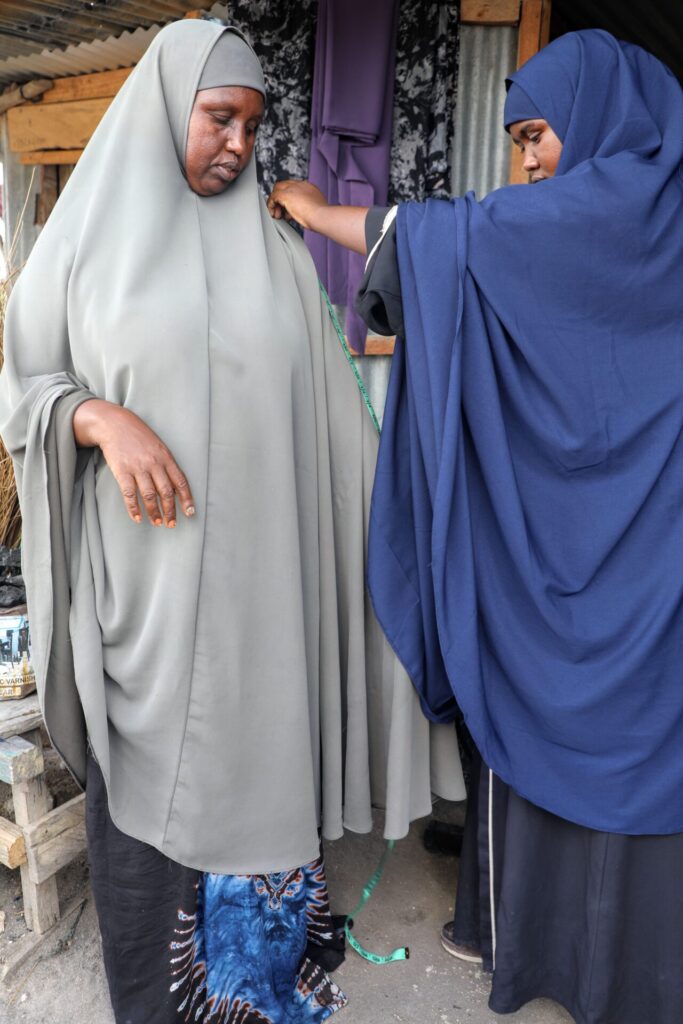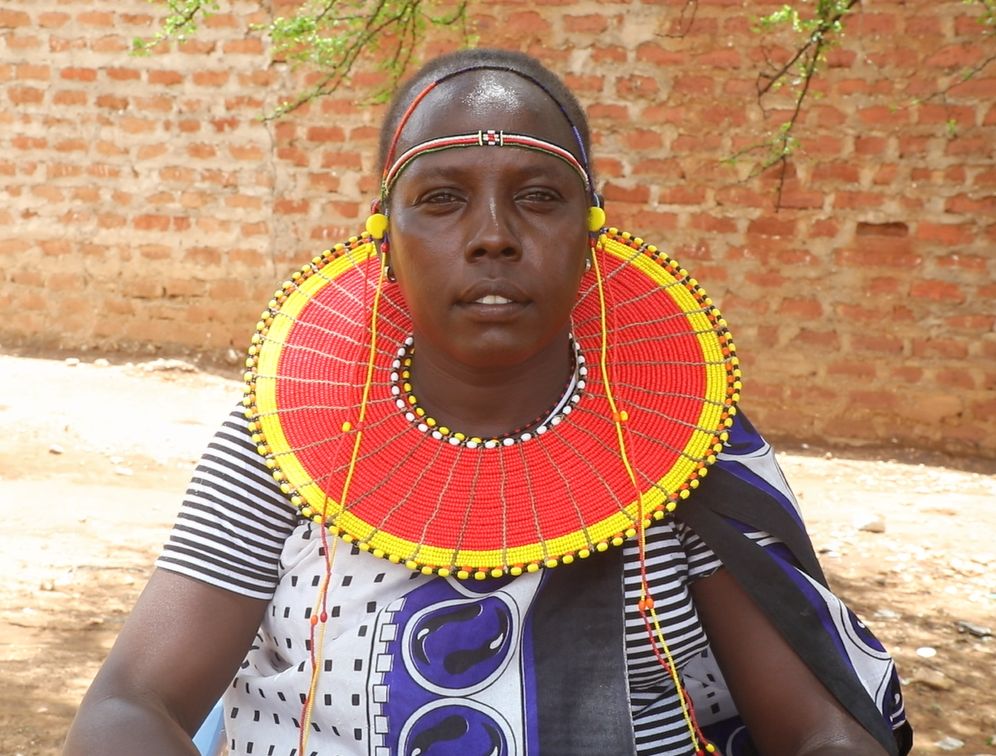
At the age of 10, Alice Shakinei from Masol Community Conservancy in West Pokot County experienced a severe reaction in her right leg following a polio injection during a clinic visit.
Her family sought treatment from community herbalists, and after several failed attempts, took her back to the hospital. Unfortunately for Alice, it was too late. She was left with a disability that physically restricted her in multiple ways. Determined to rise above her circumstances, Alice grew up to become an industrious lady who today runs her own petroleum business.
On a typical day, you will find her cheerfully filling up her jerry-cans with petroleum, ready to serve her customers. Before she established her business, Alice was a stay-at-home mother with no source of income, and was left to raise her children by herself after her husband left.
“At that moment, I knew that the children were looking up to me as their provider, so I decided to start selling petrol and diesel on people’s verandas. It took me two years before I secured a space.”
In 2019, Alice used a Ksh 25,000 loan from Rangelands SACCO to grow her business. As the sole fuel supplier in her area, which lacks a petrol station, the demand for her products and services has risen. On a good day, she makes up to Ksh 10,000 and on an average day, up to Ksh 6,000.
The business training Alice received from Biashara Mashinani played a crucial role in the expansion of her business. “I had the skills and a bit of knowledge, but what I was taught was not even close to half what I knew. Learning budgeting, proper business planning, record keeping, and time management helped me,” she explains.

Alice is not immune to the stigma associated with her condition. “People have said negative things about me, but at the end of the day, I know that I am the only one who can help my children and myself.” Additionally, Alice’s limited mobility causes her to lose customers sometimes, as deliveries are unsuccessful or delayed.
These challenges would discourage many, but not Alice, now 37. She draws strength from knowing she has built a safe home for her three children and ensured they have access to education and other basic necessities. Alice aspires to own a petrol station and serve customers from all parts of the country. Her advice to young girls and women is, “Prioritise venturing into business, embrace everything that comes with it, and do not let anything stop you from achieving your goals.”

